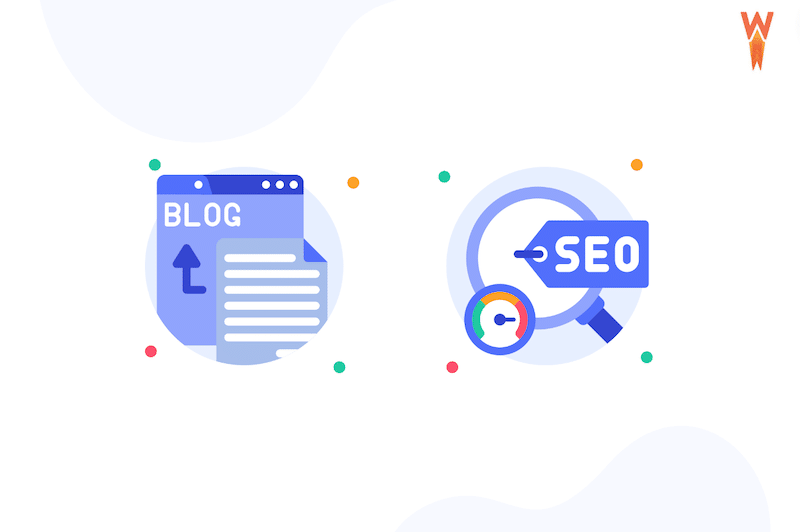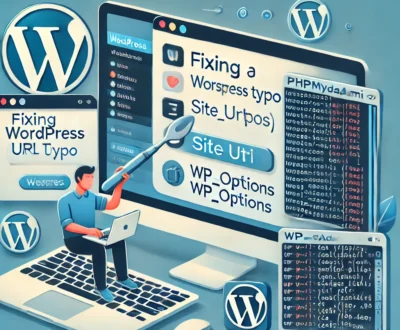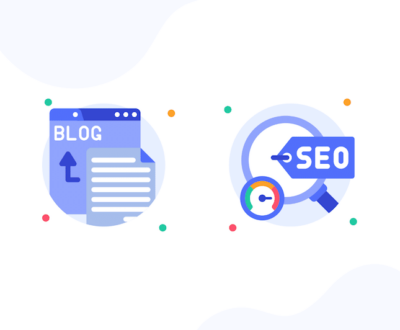
20 SEO Tips To Help You Rank On Google
- What Are SEO Keywords and How to Use Them? – Research and use relevant keywords naturally in your content, title, and headings.
- How Does Quality Content Improve SEO? – Write useful, engaging, and informative content that answers user questions.
- Why Is Website Speed Important for SEO? – Optimize images, enable caching, and use fast hosting to improve page load time.
- How to Make a Website Mobile-Friendly for SEO? – Use responsive design and test your site on mobile devices.
- What Are Internal and External Links in SEO? – Link to related pages on your site and credible external resources.
- How to Write Effective Meta Titles and Descriptions? – Keep titles under 60 characters and write compelling descriptions with keywords.
- Why Is Alt Text Important for SEO? – Add descriptive alt text to images to help search engines understand them.
- How to Update Old Content for Better SEO? – Refresh outdated posts with current information and fix broken links.
- What Are Backlinks and Why Are They Important? – Get links from trusted websites to improve your site’s authority.
- How to Use Header Tags (H1, H2, H3) in SEO? – Organize content with header tags to make it readable and SEO-friendly.
- Why Does User Experience (UX) Matter for SEO? – Ensure easy navigation, fast load times, and mobile optimization.
- How to Submit a Sitemap to Google Search Console? – Upload your sitemap for better indexing by search engines.
- What Are Long-Tail Keywords and Why Use Them? – Target specific, less competitive search phrases.
- How to Reduce Bounce Rate for SEO? – Provide engaging content, improve page speed, and ensure easy navigation.
- Why Is SSL (HTTPS) Important for SEO? – Secure your site with HTTPS to build trust and improve rankings.
- How to Optimize URLs for SEO? – Use short, keyword-rich URLs that describe your content clearly.
- What Are SEO-Friendly Blog Post Formats? – Use bullet points, headings, and short paragraphs for readability.
- How to Monitor SEO Performance? – Use tools like Google Analytics and Search Console to track results.
- Why Is Content Consistency Important for SEO? – Regularly publish fresh content to keep your site active.
- How Does Social Media Impact SEO? – Share your content on social media to drive traffic and increase visibility.
1. What Are SEO Keywords and How to Use Them?
SEO keywords are the terms and phrases that people use when searching online. To use them effectively, first, conduct thorough keyword research to identify what’s relevant to your audience. Once you’ve found the right keywords, naturally integrate them into your content, titles, headings, and meta descriptions. Avoid keyword stuffing—make sure they blend smoothly within the content to maintain readability.
2. How Does Quality Content Improve SEO?
Quality content is essential for ranking higher in search engine results. Google rewards informative, well-written, and user-focused content. To ensure your content is high-quality, answer user questions, provide value, and create content that keeps users engaged. Focus on clarity, relevance, and depth while avoiding fluff. Quality content boosts your site’s authority and trustworthiness, which are crucial SEO ranking factors.
3. Why Is Website Speed Important for SEO?
Website speed is a critical SEO factor because it affects both user experience and search engine rankings. Slow websites can cause high bounce rates and reduce conversion rates. To improve speed, optimize images, enable browser caching, minify JavaScript and CSS files, and select fast, reliable hosting. Tools like Google PageSpeed Insights can help you identify and fix speed-related issues.
4. How to Make a Website Mobile-Friendly for SEO?
With a growing number of users accessing the web via mobile devices, Google prioritizes mobile-friendly websites in its rankings. Ensure your website is responsive, meaning it adapts seamlessly to various screen sizes. Use a mobile-friendly design, check the site’s mobile usability in Google Search Console, and regularly test it on multiple devices to ensure it provides a smooth experience.
5. What Are Internal and External Links in SEO?
Internal links are hyperlinks that point to other pages on your website, while external links point to pages on other websites. Both are important for SEO: internal links help search engines discover new pages and improve site structure, while external links to credible sources enhance your content’s authority. When using external links, make sure they come from high-quality, relevant sources.
6. How to Write Effective Meta Titles and Descriptions?
Meta titles and descriptions play a key role in SEO because they influence click-through rates from search results. Write clear, compelling titles that include your target keywords and stay under 60 characters. Descriptions should summarize the content of the page, enticing users to click. Keep them under 160 characters and include relevant keywords to improve both SEO and user engagement.
7. Why Is Alt Text Important for SEO?
Alt text (alternative text) describes the content of an image for search engines and visually impaired users. This text helps search engines understand the context of images, which can improve your rankings in image search results. Make sure your alt text is concise, descriptive, and keyword-rich. Avoid keyword stuffing and ensure it accurately reflects the image content.
8. How to Update Old Content for Better SEO?
Refreshing outdated content is an excellent way to improve your SEO rankings. Over time, some of your content may become less relevant or may include outdated information. Update your articles with fresh, current information, add new statistics or insights, and correct any broken links. This signals to Google that your content is up-to-date and relevant, improving its chances of ranking.
9. What Are Backlinks and Why Are They Important?
Backlinks are links from other websites that point to your content. They act as “votes of confidence,” signaling to search engines that your content is valuable. High-quality backlinks from reputable websites can significantly boost your SEO ranking. To build backlinks, create valuable content that others want to link to, engage in guest blogging, or reach out to influencers in your industry.
10. How to Use Header Tags (H1, H2, H3) in SEO?
Header tags (H1, H2, H3, etc.) structure your content and make it more readable, both for users and search engines. The H1 tag should include your primary keyword and be used for the main title of your page. Subheadings (H2, H3) should break the content into digestible sections, making it easier for users to navigate. Proper use of header tags also helps search engines understand the context and hierarchy of your content.
11. Why Does User Experience (UX) Matter for SEO?
User experience (UX) is crucial for SEO because Google rewards websites that are easy to use and navigate. If your site is difficult to use, visitors are more likely to leave, which increases your bounce rate. Focus on clear navigation, intuitive design, mobile optimization, and fast loading times. A positive UX encourages users to stay longer, which improves your rankings.
12. How to Submit a Sitemap to Google Search Console?
Submitting a sitemap to Google Search Console helps Google crawl and index your website more efficiently. A sitemap is a file that lists all the important pages on your website. To submit it, log into your Google Search Console account, navigate to the “Sitemaps” section, and submit the URL of your sitemap. This ensures that all your pages are indexed, which is important for SEO visibility.
13. What Are Long-Tail Keywords and Why Use Them?
Long-tail keywords are longer, more specific search phrases that typically have lower competition. They are valuable for targeting niche audiences and often lead to higher conversion rates. Incorporating long-tail keywords into your content can help you rank for specific queries and attract visitors who are more likely to convert into customers.
14. How to Reduce Bounce Rate for SEO?
Bounce rate refers to the percentage of visitors who leave your website after viewing only one page. A high bounce rate can negatively impact your SEO rankings. To reduce bounce rate, create engaging content, improve page load speeds, and ensure that navigation is intuitive. Adding internal links to other relevant pages and optimizing the content for your target audience can also help keep users on your site.
15. Why Is SSL (HTTPS) Important for SEO?
SSL (Secure Sockets Layer) is a protocol that encrypts data between your website and its visitors. Websites with SSL certificates use HTTPS, which is now a ranking factor for Google. Having SSL on your site not only improves security but also builds trust with users, ultimately boosting your SEO rankings. It’s essential to switch your site from HTTP to HTTPS for both security and SEO benefits.
16. How to Optimize URLs for SEO?
Optimizing your URLs helps both users and search engines understand the content of your page. Use short, descriptive URLs that include relevant keywords. Avoid long, complex URLs with unnecessary characters. A clean and simple URL structure is more likely to rank higher in search results and is easier for users to read and remember.
17. What Are SEO-Friendly Blog Post Formats?
An SEO-friendly blog post format enhances readability and helps search engines index your content more effectively. Use short paragraphs, bullet points, and clear headings to make your posts scannable. Break up large blocks of text to make the content more digestible. This improves user experience and keeps readers engaged, which can lower your bounce rate and improve SEO.
18. How to Monitor SEO Performance?
Monitoring SEO performance is essential for understanding how your site is performing in search results. Use tools like Google Analytics and Google Search Console to track key metrics such as traffic, keyword rankings, and user behavior. Regularly review this data to identify areas for improvement and adjust your SEO strategy accordingly.
19. Why Is Content Consistency Important for SEO?
Publishing content consistently is important for maintaining an active and engaged audience. Regularly posting fresh, relevant content signals to search engines that your site is active, which can improve your SEO rankings. Aim for a steady content publishing schedule, whether that’s weekly, biweekly, or monthly, and focus on delivering value with every post.
20. How Does Social Media Impact SEO?
Social media plays an indirect but significant role in SEO. Sharing your content on platforms like Facebook, Twitter, and LinkedIn can drive traffic to your website and increase its visibility. Social media engagement can also lead to more backlinks and greater brand awareness, both of which contribute to higher SEO rankings.
These strategies, when implemented together, can significantly improve your SEO performance and help you rank higher on Google! 🚀

The Importance of Patience in SEO: Why Sticking With It Pays Off
When it comes to SEO, there’s no “quick fix.” It’s a long-term game, one that demands patience, persistence, and a steady commitment to improvement. For many new website owners, the path to higher rankings and better traffic may feel slow at first. But, if you’re willing to stick with it, the results will speak for themselves.
Here’s why patience is essential in SEO and how you can build a reputation that stands the test of time.
1. SEO is a Long-Term Investment
SEO is not about instant gratification. Unlike paid ads, where results can be seen within days or weeks, SEO takes time. Search engines need to crawl and index your site, then rank it based on hundreds of ranking factors. This process can take months, especially if your site is new or highly competitive.
However, the beauty of SEO is that once you start to gain momentum, the results compound. As you keep optimizing, your site can continue to grow and attract more visitors without requiring constant input. That’s the power of organic search!
2. Consistency is Key
SEO is about small, consistent actions that build on each other. Whether it’s optimizing content, building backlinks, improving site speed, or enhancing user experience, the more consistent you are with these tasks, the more effective they will be in the long run.
Rather than focusing on short-term spikes, aim for steady, incremental growth. It’s about making improvements every month, even if the changes seem small at first. Over time, these efforts add up, and you’ll start to see your rankings improve.
3. Quality Over Quantity
When you’re focusing on SEO, don’t fall into the trap of trying to do everything at once. Google values quality over quantity. Instead of rushing to publish dozens of blog posts or create multiple backlinks, prioritize creating valuable, well-researched, and informative content that meets the needs of your audience.
A high-quality blog post or a well-constructed page can have a lasting impact and help you build authority in your niche. Search engines love authoritative, trustworthy content, and over time, you’ll see the benefits of your hard work.
4. Building Your Reputation Matters
Your online reputation plays a critical role in SEO success. Search engines, especially Google, look at signals of trust and authority when ranking websites. This includes factors like backlinks from reputable sources, positive user engagement, and reviews.
By staying patient and focusing on delivering excellent content, you’ll naturally build a good reputation in your industry. Engage with your audience, offer value, and avoid shortcuts. Over time, this solid foundation will help you rank higher and attract more organic traffic.
5. Patience is Rewarded by Sustainable Growth
One of the most significant benefits of SEO is that it leads to sustainable, long-term growth. While paid ads stop working the moment you stop paying, SEO keeps delivering as long as you continue following best practices. Even if there are changes in search engine algorithms, a well-optimized, high-quality website has staying power.
By focusing on providing value, staying patient, and letting your SEO strategies evolve over time, you’re building a solid foundation that will benefit you for years to come.
6. The Power of Building Relationships
SEO is not just about optimizing your website for search engines; it’s about building relationships with your audience, influencers in your industry, and other website owners. Engaging with others in your niche through social media, guest blogging, and sharing helpful resources can not only increase traffic to your site but also help you build credibility.
When your website becomes a trusted resource, people will naturally link to it, share it, and return to it. This organic relationship-building is one of the best ways to enhance your reputation and grow your site’s authority.
Dont Give UP!
SEO may not bring instant results, but with consistent effort, quality content, and a focus on long-term growth, you’ll start seeing the fruits of your labor. Be patient, stick to your strategy, and focus on building a positive reputation. SEO is a marathon, not a sprint – and the rewards are well worth the wait.
So, for all the blog and website owners out there – trust the process, stay patient, and keep building. Success will come!
About us and this blog
We are a digital marketing company with a focus on helping our customers achieve great results across several key areas.
Request a free quote
We offer professional SEO services that help websites increase their organic search score drastically in order to compete for the highest rankings even when it comes to highly competitive keywords.
Subscribe to our newsletter!
More from our blog
See all postsRecent Posts
- Use Money Robot For Free January 8, 2025
- 20 SEO Tips To Help Your Site Rank On Google & Bing January 8, 2025
- SEO Tips for Beginners: A Friendly Guide from a Web Design Pro January 8, 2025









